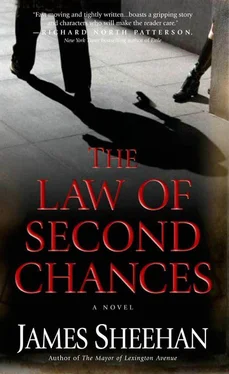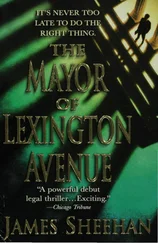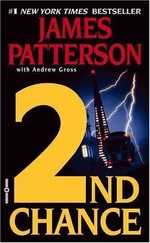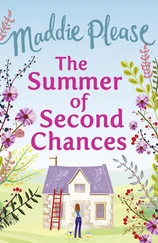James Sheehan - The Law of Second Chances
Здесь есть возможность читать онлайн «James Sheehan - The Law of Second Chances» весь текст электронной книги совершенно бесплатно (целиком полную версию без сокращений). В некоторых случаях можно слушать аудио, скачать через торрент в формате fb2 и присутствует краткое содержание. Год выпуска: 2013, ISBN: 2013, Издательство: James Sheehan, Жанр: Триллер, на английском языке. Описание произведения, (предисловие) а так же отзывы посетителей доступны на портале библиотеки ЛибКат.
- Название:The Law of Second Chances
- Автор:
- Издательство:James Sheehan
- Жанр:
- Год:2013
- ISBN:9781630011659
- Рейтинг книги:3 / 5. Голосов: 1
-
Избранное:Добавить в избранное
- Отзывы:
-
Ваша оценка:
- 60
- 1
- 2
- 3
- 4
- 5
The Law of Second Chances: краткое содержание, описание и аннотация
Предлагаем к чтению аннотацию, описание, краткое содержание или предисловие (зависит от того, что написал сам автор книги «The Law of Second Chances»). Если вы не нашли необходимую информацию о книге — напишите в комментариях, мы постараемся отыскать её.
The Law of Second Chances — читать онлайн бесплатно полную книгу (весь текст) целиком
Ниже представлен текст книги, разбитый по страницам. Система сохранения места последней прочитанной страницы, позволяет с удобством читать онлайн бесплатно книгу «The Law of Second Chances», без необходимости каждый раз заново искать на чём Вы остановились. Поставьте закладку, и сможете в любой момент перейти на страницу, на которой закончили чтение.
Интервал:
Закладка:
“Yes, your honor.”
“How do you want to handle the jury?”
“I’d like to question each juror individually, Judge,” said Jack. “And I’d like the courtroom closed for voir dire.”
“Any objection?”
“No, your honor.”
“When we start the trial, we’re going to bring the spectators in an hour early so they will all be seated beforehand. I know this doesn’t involve you, but we are going to give tickets out on a first-come, first-serve basis downstairs after the press gets their tickets-I’m going to let them sit in the front rows. There’s a limited number of tickets, so if you have anybody that you want to be here, let me know now and we’ll give you tickets for every day. Nobody gets in the courtroom without a ticket.”
“Judge, I’d like my investigator, Henry Wilson, to sit at counsel table with me when he is in the courtroom.”
The judge looked at Spencer Taylor. “Any objection?”
“No, your honor.”
“So ruled. Anything else?”
“Yes, your honor,” Jack said. “I’d like the defendant’s father to sit behind us.”
The judge didn’t ask for Taylor’s comments on that request. “So ruled. Check with the bailiff before we start each day so he or she can make the appropriate arrangements. We don’t want any fights to break out over seating.”
“Last request, your honor,” Jack told the judge. “I want to make sure my client is not handcuffed when he comes into the courtroom. His father is going to bring him a suit every day, and I’d like him to be able to change into it and be seated in court before the jurors are brought in.”
The judge again looked at Spencer Taylor.
“No objection, your honor.” Spencer wasn’t sweating the small stuff. He also hoped he was making points with the judge. Jack was making all the requests and he was just agreeing.
“So ruled. You two gentlemen keep going along like this and we’ll be through with this trial in no time.”
The hearing seemed to have given the judge confidence. He was warming up to the idea of being on center stage. Jack thought that was a good development. He needed a strong judge for his plan to work.
On Thursday Jack and Henry had lunch in the city with Luis. The man was so nervous he was visibly shaking. For a moment, Jack thought back to their days with the Lexingtons. Back then Rico was so tough, so hard, so sure of himself. Jack was certain that person was still inside there somewhere. Luis had already lifted himself out of the gutter, but the situation with Benny seemed like it was about to knock everything out from under him.
“How did your visit with Benny go?” Jack asked.
“Great. Great. It couldn’t have been better. I owe that to the both of you. Whatever you said to him made him start to see things differently.”
“It wasn’t me,” Jack replied. “It was Henry. He and Benny have traveled some of the same roads.”
“It’s prison too,” Henry added. “If you’ve got half a brain, it makes you start thinking about things.”
“Whatever it was, Benny and I are together now,” Luis responded. “I’m just so on edge. I’m so afraid the state is going to pull something in that courtroom that will send Benny to his death.” Luis started shaking again. Jack searched for something to say that would calm the man.
“Luis, I told you before, I can’t guarantee the outcome of this trial. But I can guarantee you that Benny will get the best day in court he will ever have. Nobody is going to pull any shenanigans in that courtroom. I won’t allow it. I’m the Mayor of Lexington Avenue, Luis. And that courtroom is my turf!”
Luis smiled. He remembered the day on a football field many years ago, when he had given that lesson to Jack. He was thankful that his friend had learned the lesson so well. Henry, on the other hand, had no idea what Jack was talking about.
57
The criminal courts building was a seventeen-story monolith located on Centre Street near the tip of Manhattan Island and within walking distance of the Fulton Fish Market, the South Street Seaport, and Wall Street. The surrounding area was a complex of judicial and government buildings. The civil courthouse was two blocks away, the federal court was on the next block, and City Hall was across the street. The area was always overrun with television cameras and reporters for one reason or another.
For criminal trials, the networks set their little kiosks up on the sidewalk in front of Collect Pond Park, a small park directly across the street from the criminal courts building. Each kiosk had its own lights, its own camera on a tripod, and its own talking head. There were also producers and producers’ assistants and runners and plenty of others to give and take orders and to whisper about what was happening and create a buzz that would work itself into a frenzy that could be translated into exciting news for the TV screen.
The press had gotten word that the courtroom would be closed for jury selection, so Monday morning was rather subdued. The kiosks were still being set up and reporters were there to meet the attorneys as they entered the courthouse, with cameramen at the ready to film them. But there were no crowds to speak of, no buzz and no frenzy-yet.
The felony courtrooms were on floors eleven through sixteen. Judge Middleton’s courtroom was on the eleventh floor. The walls were covered with maple paneling for the first six feet. It matched the wood of the judge’s dais and the attorneys’ tables. The rest of the wall up to the thirty-foot ceiling was white and bare. There were four large, modern, ugly lights that lined the ceiling on each side of the room. Overall it was a sterile, cold environment.
The judge’s dais was relatively modest for such an imposing place. The witness chair was to the judge’s right and the jurors’ box to the right of that. The lawyer’s rostrum was movable. During voir dire and opening and closing statements it was placed facing the jury. For the questioning of witnesses it was turned to face the witness chair so that the witness would be looking directly at the lawyer and the jury could watch the interplay of questions and answers. The court reporter was also on that side right in front of the judge’s dais so as to be able to hear the questions and answers and record them. All other court personnel were on the far left side of the room opposite the jurors. Accommodations were tight inside the bar that separated the judge, the lawyers, the jurors and the court personnel from the rest of the courtroom.
The benches for spectators were behind the bar and were set up on each side of the middle aisle like the pews in a church. Jack counted six rows on each side, each row accommodating maybe eleven people. When the trial started they would be packed in like sardines.
This morning, however, since they were selecting a jury, the courtroom was empty of spectators. Only the judge, the lawyers, and the court personnel were present as each prospective juror was brought in for questioning.
Jack had always felt that the term “jury selection” was really a misnomer. It should have been called “jury exclusion” because the purpose was to identify and exclude anyone with a bias. In order to do that for his part, Jack had to ask the right questions, and in order to ask the right questions, he had already made a profile of his ideal juror. He’d decided that it didn’t matter whether it was a man or a woman. He wanted people who were independent and open-minded and who had the intelligence to evaluate the evidence unemotionally and apply it rationally to the appropriate standard. He wanted to eliminate those who saw things in black and white, who never questioned authority, or who had relatives who were career military people or in law enforcement.
Читать дальшеИнтервал:
Закладка:
Похожие книги на «The Law of Second Chances»
Представляем Вашему вниманию похожие книги на «The Law of Second Chances» списком для выбора. Мы отобрали схожую по названию и смыслу литературу в надежде предоставить читателям больше вариантов отыскать новые, интересные, ещё непрочитанные произведения.
Обсуждение, отзывы о книге «The Law of Second Chances» и просто собственные мнения читателей. Оставьте ваши комментарии, напишите, что Вы думаете о произведении, его смысле или главных героях. Укажите что конкретно понравилось, а что нет, и почему Вы так считаете.












